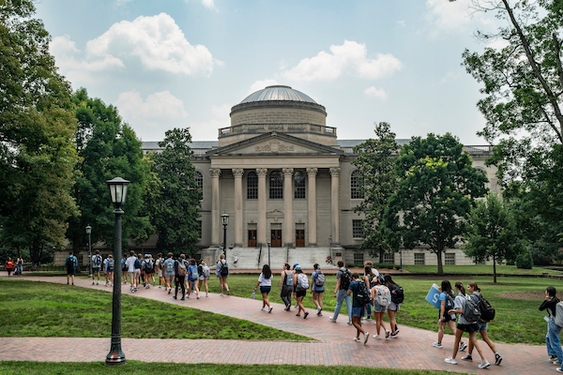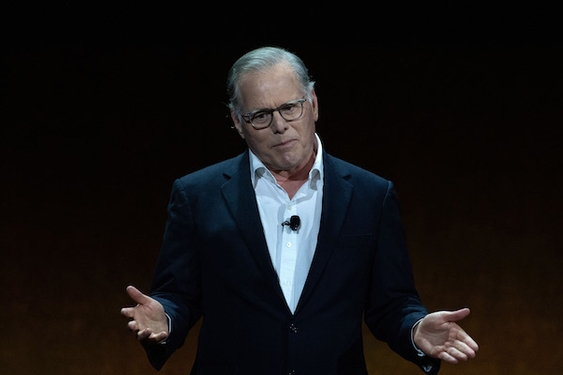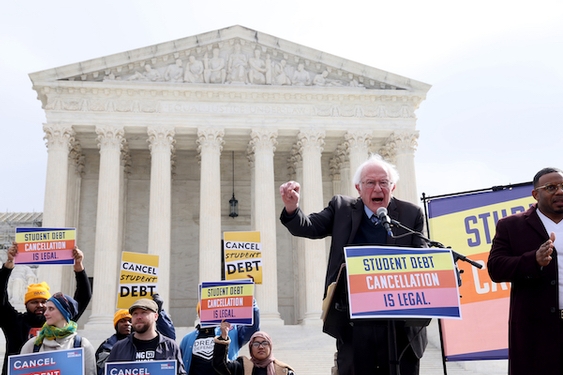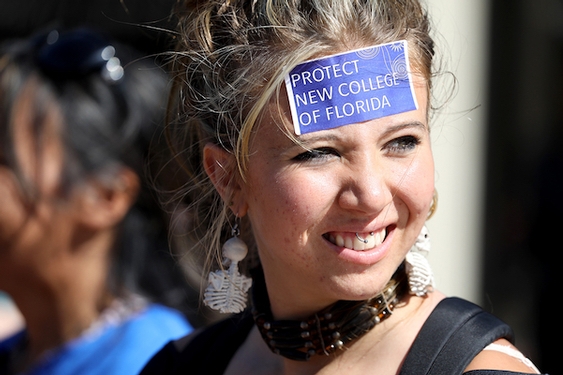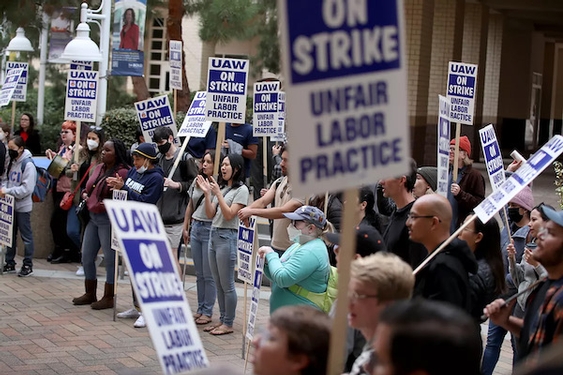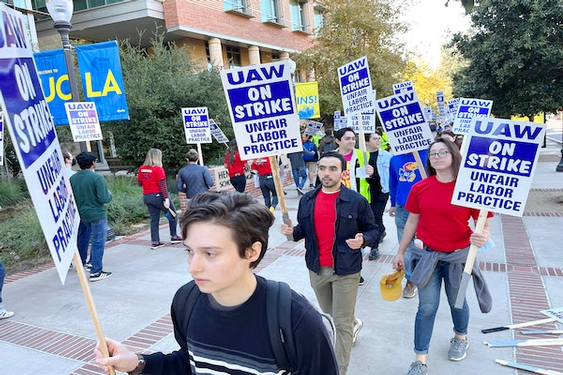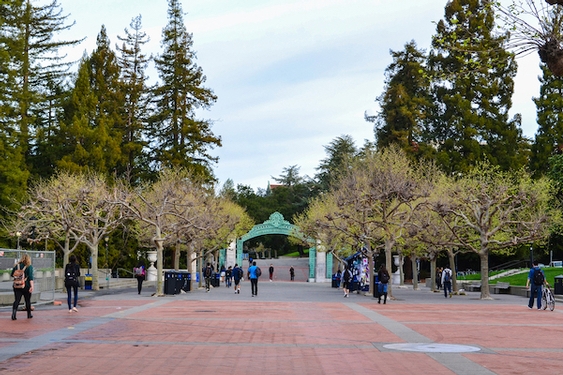Public confidence in higher education has plummeted over the last eight years, a new poll from Gallup has found, as tuition costs rise, enrollments dwindle and universities become increasingly politicized.
Only 36% of Americans have a “great deal” or “quite a lot” of confidence in higher education, according to the June poll. That number is down from 57% of Americans in 2015 and 48% in 2018.
The majority of 2023 respondents, 40%, said they had “some” confidence in higher ed, while 22% said they had “very little” confidence. In 2015, just 9% of respondents had “very little” confidence.
Declines happened across the board and were not isolated to one particular political group, education level, age or sex. That fact stands out, said Zach Hrynowski, a senior education research consultant at Gallup.
“Sometimes when we do these polls and we see declines in the overall numbers, it's generally due to changes in one subsection of the population,” Hrynowski said. “In this case, higher education is losing ground, not only with folks that you might think of as generally being a little bit less favorable to the institutions, but also among the bedrock of support: Democrats, those who have a degree already (and) young Americans.”
Republicans had the steepest drop in confidence among political groups: Only 19% reported a “great deal” or “quite a lot” of confidence in 2023 compared to 56% in 2015.
During the same time period, Democrats reported a 9% drop in confidence (from 68% in 2015 to 59% in 2023) and independents saw a 16% decline (from 48% in 2015 to 32% in 2023).
Among those with a bachelor’s degree, confidence fell 10%. Those with graduate degrees reported a 17% drop. Around half of respondents with college degrees currently have a “great deal” or “quite a lot” of confidence.
Meanwhile, the confidence of those without a college degree dwindled from 54% in 2015 to 29% in 2023.
Confidence levels also dropped among all age groups and both sexes.
Hrynowski cited several factors that could contribute to the wavering confidence levels, including rising tuition costs and free speech issues on campus.
Pennsylvania colleges and universities are some of the priciest in the nation. Between 2015 and 2022, in-state tuition at Pitt climbed over 14% and Penn State tuition rose over 16%. Private universities Carnegie Mellon and Duquesne have increased their price tags by more than 20% and 34%, respectively.
At the state schools, tuition has increased by over 9% despite several years of tuition freezes. Many of the state schools are currently battling steep enrollment declines, as are Pennsylvania'scommunity colleges.
And over the past year, schools such as Pitt and Penn State have been the site of tumultuous protests after controversial speakers visited campus, adding to the national dialogue about free speech at universities. A 2022 survey found that half of Penn State students and 36% of Pitt students would feel somewhat or very uncomfortable sharing their views on a controversial political topic during an in-class discussion.
Pitt and Penn State are also among four state-related universities fighting for their 2023-24 state funding during this year’s budget process. Seeking guaranteed tuition freezes and more transparency from the schools, a majority of House Republicans voted against the universities’ 2023-24 state funding last week.
Low confidence in higher education also signals a broader trend across the country, Hrynowski said. Trust in other American institutions – like the military, presidency and medical system – is dwindling, Gallup found.
Hrynowski said it is difficult to parse out how much of higher education’s waning confidence is specific to the institution itself, and how much of it reflects an increasingly skeptical American public.
“I think part of this is a paradigm shift in the United States where we've just seen more Americans expressing less confidence in some of these really big institutions in society,” he said.
--------
©2023 PG Publishing Co. Visit at post-gazette.com. Distributed by Tribune Content Agency, LLC.


